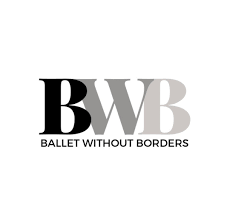Shane’s dance journey began at The Kirov Academy of Ballet, where he graduated top of his class in 2004! His exceptional skill and artistry were recognised by several prestigious companies, including San Francisco Ballet, American Ballet Theatre, Boston Ballet, The Royal Danish Ballet, and Vienna State Ballet. Wuerthner accepted the offer from Vienna State Ballet and joined as a corps de ballet memberin 2005. In 2012, he made a significant move to The San Francisco Ballet as a soloist. In 2014, Wuerthner joined Queensland Ballet as a Soloist, and his unwavering commitment and consistent performances led to his promotion to Principal in 2015.
Having retired from ballet in 2017 to begin a career as a personal trainer. His knowledge of dancer conditioning and passion for fitness quickly made him a sought-after figure in this field. Notably, he was named Personal Trainer of the Year before he had even completed a year as a trainer. Wuerthner's experience in fitness led him to establish Athletistry Personal Training, a venture that focused on adult ballet coaching and holistic movement practices. Building on the success of this venture, he launched Athletistry Studio, which marked his return to the ballet world in an administrative capacity.
In 3 words what does ballet mean to you?
My life’s passion
What would be your favourite ballet to dance?
My favourite ballet I ever danced was Anna Karenina by Boris Eifman. I had the opportunity to dance both the corps de ballet and Vronsky. It was an incredibly challenging ballet in which no one had the same choreography. I remember when people would get sick or injured in the corps, it would often take 4 people just to replace 1 person, and if any of the 3 principals went off they would replace the entire principal cast.
Do you believe that ballet is a readily accessible art-form?
I think it has become more accessible in recent years, but it still has a long way to go. Other forms of commercial dance have opened a gateway to ballet being more widely accepted, but it still sits in an elite space that still is out of reach for many. The cost of performances and ballet training can be extremely high which places ballet in a higher socio-economic bracket. Efforts that have made ballet more accessible have included outreach programs, scholarships for talented dancers from underprivileged backgrounds, and the incorporation of contemporary themes and music to attract a younger and more diverse audience. Digital platforms have also played a crucial role in making ballet more accessible both through performances and in a training capacity as is the case with what I offer through Athletistry. Despite these efforts, the challenge remains to fully democratise ballet and make it truly accessible to all, regardless of socio-economic status, background, or geography. This requires not only addressing the financial barriers but also challenging the cultural perceptions that frame ballet as anexclusive art form. By continuing to innovate and open doors to diverse audiences and talents, I believe ballet will evolve to be more inclusive, reflecting a broader spectrum of society's narratives and experiences.
What do you believe is a typical misconception about ballet that you would like to set straight?
That it is all pink tutus and fairies. Ballet is incredibly powerful in it’s ability to portray complex societal narratives and emotions. Especially through much of the choreography done in the mid to late 20th century we see a development towards unique stories being told with deeply touching story lines that weren’t evident in the classical and romantic era of ballet. I also think ballet is seen as something only for women. As a man in ballet, the training I experienced was intense, challenging and very masculine in it’s design. I had a male Ukrainian teacher and our classes would run for 4-5 hours 6 days per week. Jumps, turns, athleticism and power were all emphasised and prioritised.
What are you reading right now?
The Book on Mental Toughness by Andy Frisella and The Laws of Human Nature by Robert Greene
One thing that most people don't know about you?
My first dream in life was to be a musical theatre artist on broadway. I actually didn’t like ballet very much as a child until I had the opportunity to train with a male ballet teacher named Mikko Nissinen who is now Artistic director of Boston Ballet.
Why is the work BWB do so important?
It is bridging the accessibility gap for those who would otherwise never be exposed to the incredible art of ballet. This is so essential as it is how the art form will be maintained into the future. By sharing ballet with children we build the possibility that they will become lifelong lovers of ballet if not performers or teachers who become it’s future custodians.
Favourite ballet to watch?
La Bayadere
If you could go back to a point in time in your life, what advice would you give yourself?
Speak up. I was always very quiet, and not a great advocate for myself. As a result I often ended up being a push over and this lead to me feeling unvalued. So many of the misunderstandings I had in my career could have been avoided had I communicated how I felt earlier.
You have been given an elephant! You cannot sell it or give it away, what do you do?
Teach it to dance.






